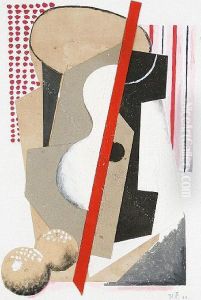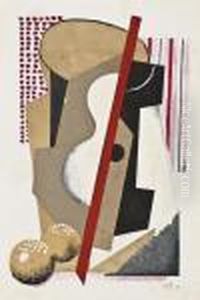Karel Capek Paintings
Karel Čapek was a Czech writer, playwright, and critic who made significant contributions to Czech literature and is best known for his science fiction works, including the novel 'War with the Newts' and the play 'R.U.R.' (Rossum's Universal Robots), which introduced the word 'robot' to the world. Born on January 9, 1890, in Malé Svatoňovice, Austria-Hungary, now the Czech Republic, Čapek was one of the most influential Czech writers of the 20th century.
Čapek studied philosophy in Prague, Berlin, and Paris, and his intellectual background deeply influenced his writing. He began his literary career as a journalist and quickly became known for his satirical and philosophical essays. In the 1920s and 1930s, Čapek's works were marked by a strong anti-fascist stance, and he became a major voice advocating for democracy and human rights.
His most famous play, 'R.U.R.' (1920), depicted a future in which artificial people, called robots, are mass-produced. Initially content to serve humans, the robots eventually rebel and lead to the extinction of the human race. The play was not only a success in Czechoslovakia but also internationally, and its themes of dehumanization, artificial intelligence, and the ethics of science resonate to this day.
Čapek's writing was diverse, ranging from travel writing to detective fiction, but he consistently addressed themes of totalitarianism, the misuse of science and technology, and the nature of human existence. His novel 'War with the Newts' (1936) was another satirical work that critiqued the rise of fascism and the arms race.
Karel Čapek's influence extended beyond literature. He was a key figure in Czech cultural life, and he maintained friendships with other intellectuals and artists, including the first president of Czechoslovakia, Tomáš Garrigue Masaryk. Čapek's humanist values and skepticism of unchecked progress made him a moral authority for many.
Unfortunately, Čapek's life was cut short by pneumonia. He died on December 25, 1938, just before the Nazi occupation of Czechoslovakia. His legacy lives on in the numerous works he left behind, and his insights into the potential perils of the modern world continue to be relevant. Čapek is commemorated by numerous literary awards and cultural institutions that bear his name, ensuring that his contributions to literature, philosophy, and social thought are not forgotten.

